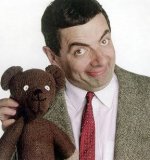T.G.G. Moogly
Traditional Atheist
Since 1758 we have referred to ourselves as Homo Sapiens, literally "Wise Man." But I wonder if a better description might have been Homo Motus, "Emotional Man." It seems to me that we are far more emotional than we are wise. If we were as wise as our species identifier suggests, we would certainly be behaving differently. Constant war, nuclear weapons, racism, environmental destruction, extinction of species, etc., we are simply not living up to the label "Wise Man."
Or maybe there are actually two distinct species of humans inhabiting the planet at this time, Homo Sapiens and Homo Motus, much like Neanderthals and our ancestors coexisted for millenia in prehistoric Eurasia.
What do you think?
Or maybe there are actually two distinct species of humans inhabiting the planet at this time, Homo Sapiens and Homo Motus, much like Neanderthals and our ancestors coexisted for millenia in prehistoric Eurasia.
What do you think?

